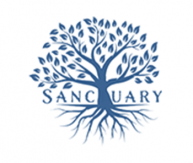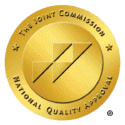Inpatient Drug Rehab in Los Angeles, California
- Home
- Rehab Programs in Los Angeles, California
- Inpatient Drug Rehab in Los Angeles, California
In Los Angeles, California, inpatient drug rehab is the best way to achieve treatment goals in early recovery from drug or alcohol addiction. Treating addiction takes time. A person needs structure, support, and time to develop healthy habits. Most people cannot do this unless they are removed from the stressors of everyday life. At Sanctuary Treatment Center we offer residential treatment as one of our inpatient rehab programs here in Los Angeles.

What is Inpatient Rehab?
Inpatient rehab means a person lives in the treatment center during their program. Many people might think of this as a stay at a hospital. However, unlike hospitals, inpatient rehab for addiction occurs within a comfortable, home-like setting.
Most inpatient drug rehab programs in Los Angeles, CA last about one to three months. Overall, the longer a person stays in treatment, the better. Most addiction specialists recommend that clients stay for at least ninety days. During inpatient rehab, clients get ongoing, hands-on support as they work on their recovery from addiction.
In addition, inpatient rehab keeps clients safe from relapse triggers and other temptations. Clients in early recovery are more likely to relapse if they don’t get treatment after quitting drugs and alcohol. Throughout residential treatment, clients learn more about themselves and their addiction. They also learn how to manage stress and other triggers of substance abuse.
Who Needs Inpatient Drug Rehab in Los Angeles?
Inpatient rehab is best for those who are new to recovery. Most people enter our Los Angeles based inpatient rehab program following drug detox. Detox is where people can safely withdrawal from substances that their body has become dependent on.
After that, clients still need to continue treatment. While detox is an important step in recovery, this is not enough to sustain long-term recovery. After all, recovery isn’t just about getting sober. Clients also need to know the root causes of addiction to prevent relapse and improve their lives.
Clients leaving a detox program should consider going right into residential treatment. This way, they continue inpatient rehab instead of trying to stay sober on their own. Most people will not have the skills to stay sober for long after detox. They need residential treatment for this reason.
What Does Residential Treatment Look Like?
Residential treatment at our inpatient rehab offers a welcoming place to start recovery. Each of the facilities at Sanctuary Treatment Center has a maximum of six beds. This means each client will get the care and attention they need throughout treatment.
In addition, residential treatment follows a structure and schedule. Clients take part in group sessions and individual therapy throughout the day. They also share meals and activities with both peers and staff. In this way, clients feel a sense of belonging and community during inpatient rehab.
Types of Therapy Offered During Our Los Angeles Inpatient Drug Rehab
Inpatient rehab programs offer many options for therapy to their clients. As a result, they can create a client-centered treatment program. With these choices, clients can make decisions about their recovery. Thus, our inpatient rehab doesn’t take a uniform approach. We respect and value the individual in recovery.
Types of therapy offered during our inpatient drug and alcohol rehab in Southern California include the following:
Individual Therapy
During therapy, clients get a chance to work on their recovery goals. They also learn healthy ways to cope with the underlying issues that cause addiction. Often, people abuse substances to self-medicate for mental and emotional health issues.
Individual therapy follows different modalities to best meet each client’s needs, such as:
Cognitive-behavioral therapy (CBT) helps with a range of issues, like anxiety, depression, and low self-esteem. During CBT, clients learn about how their thoughts and beliefs shape their behaviors. Therapists work with clients to identify and change unhealthy thought patterns driving addictive behaviors.
Dialectical behavioral therapy (DBT) is best for people with extreme mood swings and difficulty forming trust with others. DBT was first developed for borderline personality disorder (BPD). However, DBT is also helpful to some people with addiction and other co-occurring disorders.
Trauma therapy deals with symptoms of trauma and related disorders like post-traumatic stress disorder (PTSD). Most people with an addiction also have a history of trauma. These traumas can include physical or sexual assault, childhood abuse or neglect, or being a combat veteran.
Family Therapy
Addiction affects the entire family, so family therapy can be a vital part of treatment. During inpatient rehab, family members can be involved in aftercare planning. This can ensure their loved one stays sober when returning home. Family therapy also helps family members deal with the stress of an addicted loved one. Everyone in the family benefits by taking part in this type of therapy.
TMS Treatment
TMS treatment helps people with treatment-resistant disorders. Some co-occurring mental health issues, like anxiety or depression, occur due to a lack of activity in certain parts of the brain. TMS (transcranial magnetic stimulation) helps to stimulate these parts of the brain. In addition, TMS can help clients manage cravings for drugs or alcohol during early recovery.
Holistic Rehab
Recovery from addiction involves healing the “whole self” in recovery. Holistic rehab help clients in other areas of their well-being. It focuses on things like nutrition, mindfulness, and exercise. In this way, a person can find new ways to deal with stress without drugs or alcohol. Holistic rehab also helps clients restore their health, which is often neglected during addiction.
Neurofeedback
Neurofeedback offered during inpatient rehab helps clients learn more about how their brain functions. A therapist uses a device to measure brain activity as clients complete tasks. These tasks can include watching a video, playing a game, or reading from a book. As they work on the task, a computer reads data from the device. Then, the therapist can help clients strengthen certain parts of their brains.

Benefits of Our Inpatient Rehab in Los Angeles
Our inpatient rehab helps clients get the best start in recovery. By staying in a safe and supportive environment, clients can focus on their health and wellness. In short, they can get better without any distractions or triggers.
Additional benefits of our inpatient rehab programs near Los Angeles, California include the following:
Increased rate of treatment success
Move from detox to residential treatment with the same provider
Peer support from like-minded people in recovery
Continuous access to staff
Begin treatment for co-occurring mental health disorders
Learn more about the disease of addiction
Time to build healthy habits to prevent relapse
Restore relationships with family and loved ones
Medical support staff available
Residential treatment gives clients the highest level of care to start their recovery. They will get focused attention and support when they need it most. After that, clients can move on to aftercare with outpatient treatment programs to continue their recovery.
Begin Inpatient Drug Rehab in Los Angeles, CA at Sanctuary
Addiction is a disease that requires building healthy habits and continuing to grow in recovery. Since habits take time to develop, clients new to recovery should attend long-term rehab. That way, they can stay safe and feel supported while learning how to manage their addiction. Sanctuary Treatment Center offers residential treatment as an inpatient rehab program for addiction here in Los Angeles, California.
Contact us today to heal in a safe and welcoming environment.
All Services
- Acceptance and Commitment Therapy in Los Angeles, CA
- Group Therapy in Los Angeles, CA
- Individual Therapy Program in Los Angeles, California
- TMS Therapy in Los Angeles, California
- Neurofeedback Therapy in Los Angeles, CA
- Holistic Rehab in Los Angeles, California
- Trauma Therapy in Los Angeles, California
- Family Therapy for Addiction in Los Angeles, CA
- Cognitive Behavioral Therapy – CBT – in Los Angeles, California
- DBT Therapy in Los Angeles, CA
- EMDR Therapy in Los Angeles, CA
Sanctuary Treatment
Contact Us
![]()
Call Us:
+ (888) 584 4314![]()
Email:
info@sanctuary.com![]()
Address:
Whitestone Court, Tarzana, CA 91356

We Take Insurance!
Sanctuary Treatment Center accepts most private PPO insurance plans, as well as some private HMO plans. Through private insurance plans, individuals and families can access high quality addiction treatment services. If you have questions regarding insurances, please give us a call.
Licensed (or certified, or both) by the State Department of Health Care Services
License: #190042AP Expiration: 02/28/2026
Additional License: #190042BP Expiration: 04/30/2025 #190042CP Expiration: 07/31/2025

Copyright © 2022 Sanctuary Treatment Center.
